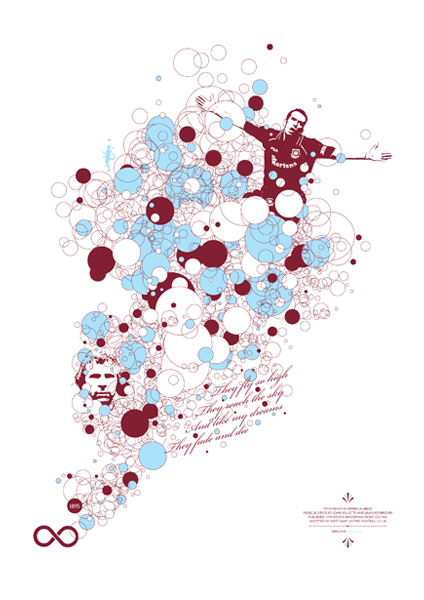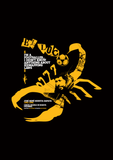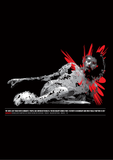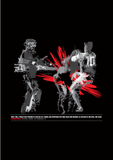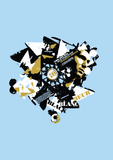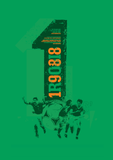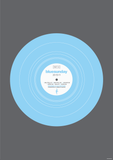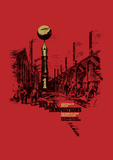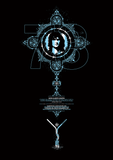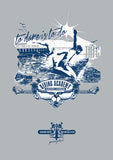West Ham UnitedForever
Based in the East End of London, West Ham United Football Club, were founded as Thames Ironworks in 1895. The Thames Ironworks was a famous shipbuilding yard and although the club have officially had nothing to do with the old industry for almost a century, the nicknames 'Hammers' and 'Irons', acquired as Thames Ironworks, have stuck ever since.
West Ham supporters are renowned for their passion and loyalty, and over the years have identified many players as fan's favourites, the most notable being Robert Frederick Chelsea 'Bobby' Moore, OBE (12 April 1941 – 24 February 1993). Moore played for the Hammers from 1958-1974, captaining the side for more than ten years of his tenure. He was, without doubt, the pivotal figure in the club's most successful era. Perhaps more famously, he was captain of the England team that won the 1966 World Cup, a feat which ensured his status as both a national treasure and global football icon. Moore is widely regarded as one of the greatest players of all time, and was cited by Pelé as the greatest defender that he had ever played against.
In recent history, another player who quickly endeared himself to the Upton Park faithful is Rome-born Paolo Di Canio. Blessed with a clever footballing brain, immense technical ability and tactical acumen, the passionate Italian is also renowned for his volatility, eccentricity and extreme political views. As a boy, he was initiated as an ‘ultra’, or extreme supporter of SS Lazio (Societá Sportiva), a team founded by Italian army officers in 1900 and the preferred club of Benito Mussolini, one of the founders of fascism. On his right biceps, is the Latin word 'DUX', Il Duce in Italian, an antonomasia for Benito Mussolini. Signed from Sheffield Wednesday in January 1999, Di Canio spent four great years with West Ham, becoming a key presence in the side and a cult terrace favourite. He proudly sports a Hammers crest tattoo, symbolising his eternal love for the club. To this day, the fans still sing a song they created for Di Canio, based on the tune of 'La donna e mobile' from Verdi's Rigoletto.
Without question, the most famous and identifiable song in the West Ham fans' repertoire is ‘I'm Forever Blowing Bubbles’. Originally written and composed around 1919 in America by Jaan Kenbrovin and John William Kellette, it was a huge hit in the United States before crossing the Atlantic to become a hit in the British music halls and theatres, the popular places of entertainment during the 1920's. The song was introduced to the club by former manager Charlie Paynter, who regularly requested the presence of a house band to play the refrain, Paynter's friend and local headmaster Cornelius Beal was a football enthusiast with a talent for music and rhyme. He often wrote playful parodies of 'Bubbles' to sing from the touchlines when players in his Park School football team were having a good game. Billy J. 'Bubbles' Murray played for Beal's Park School side and West Ham Boys in the early twenties and bore a distinct resemblance to the boy in John Everett Millais' famous 'Bubbles' painting. The painting was in the national consciousness after being used in a Pears soap commercial of the time.
The song is likely to have been adopted by West Ham supporters after their continued exposure to Beal's terrace interpretations, which could often be heard at Upton Park during the popular school and district games of the times. The song became the clubs' anthem, and over the decades the feelings and sentiments expressed in the score and lyrics, have captured the feelings and aspirations of West Ham United Football fans all across the globe.
‘Immaculate footballer. Imperial
defender. Immortal hero of 1966. First Englishman to raise the World Cup aloft.
Favourite son of London's East End. Finest legend of West Ham United. National
Treasure. Master of Wembley. Lord of the game. Captain extraordinary. Gentleman
of all time."
Inscription on the Bobby Moore
Sculpture – Wembley Stadium
‘Obviously Lazio is in my blood, but
West Ham is the place where I feel I belong and feel happy in life. I remain in
their heart like they remain in my heart, because every time I went there, the
fans always took to me.’
Paulo Di Canio


